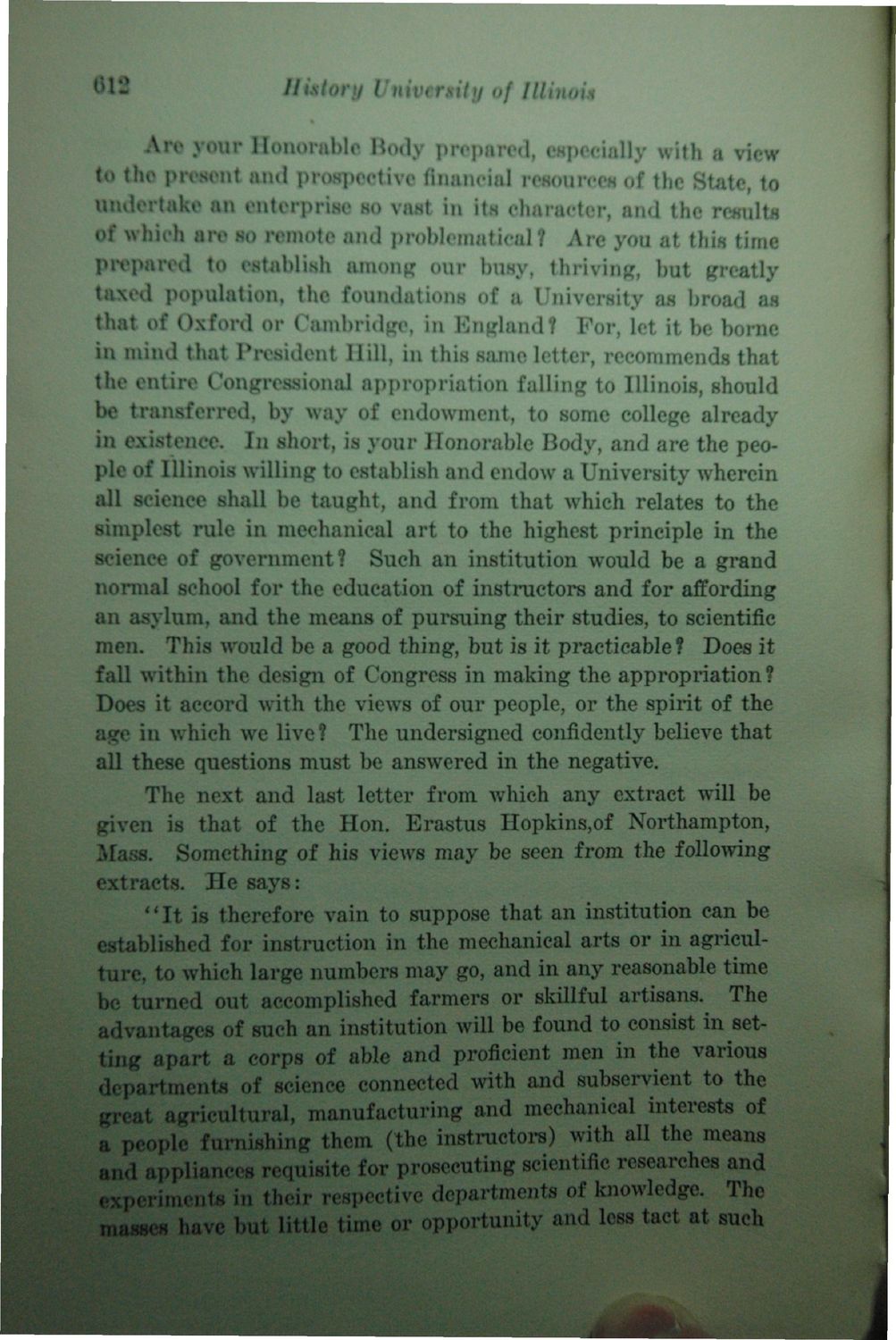| |
| |
Caption: Book - History of the University (Powell)
This is a reduced-resolution page image for fast online browsing.

EXTRACTED TEXT FROM PAGE:
012 Are your Honorable Body prepared, especially with a view to the present and prospective financial resources of the State, to undertake an enterprise so vast in its character, and the results of which are so remote and problematical ? Are you at this time prepared to establish among our busy, thriving, but greatly taxed population, the foundations of a University as broad as that of Oxford or Cambridge, in England? For, let it be borne in mind that President Hill, in this same letter, recommends that the entire Congressional appropriation falling to Illinois, should be transferred, by way of endowment, to some college already in existence. In short, is your Honorable Body, and are the people of Illinois willing to establish and endow a University wherein all science shall be taught, and from that which relates to the simplest rule in mechanical art to the highest principle in the science of government! Such an institution would be a grand normal school for the education of instructors and for affording an asylum, and the means of pursuing their studies, to scientific men. This would be a good thing, but is it practicable? Does it fall within the design of Congress in making the appropriation? Does it accord with the views of our people, or the spirit of the age in which we live? The undersigned confidently believe that all these questions must be answered in the negative. The next and last letter from which any extract will be given is that of the Hon. Erastus Hopkins,of Northampton, Mass. Something of his views may be seen from the following extracts. He says: " I t is therefore vain to suppose that an institution can be established for instruction in the mechanical arts or in agriculture, to which large numbers may go, and in any reasonable time be turned out accomplished farmers or skillful artisans. The advantages of such an institution will be found to consist in setting apart a corps of able and proficient men in the various departments of science connected with and subservient to the great:j|i|eultural, manufacturing and mechanical interests of ifpopis x^nishing them (the instructors) with all the means *Bd appliances requisite for prosecuting scientific researches and H m f l r a G the% respective departments of knowledge. The masses H but little time or opportunity and less tact at such
| |